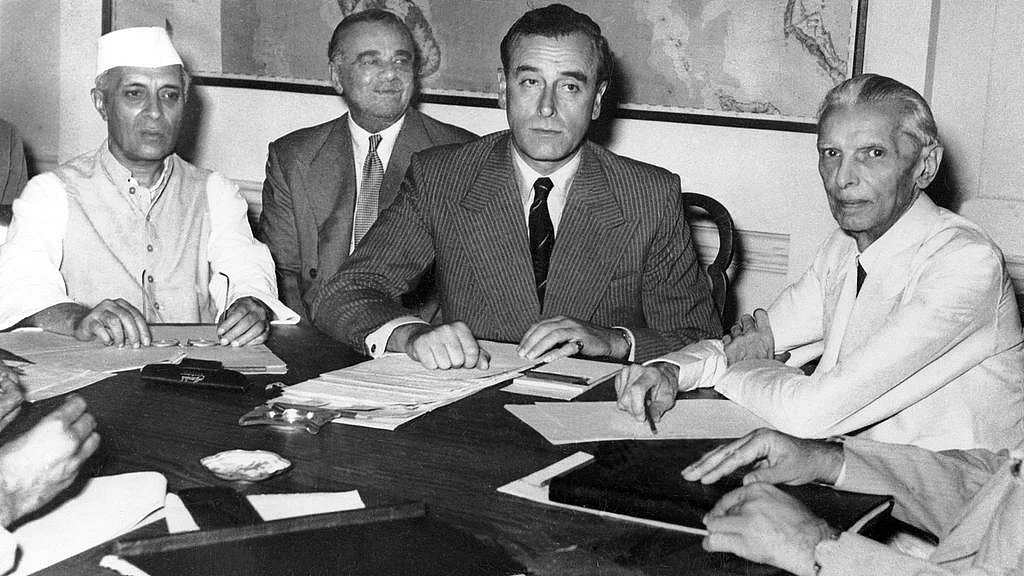Oxford Union debate: House regrets the partition of India
Countdown to Partition began on March 23, 1940, when Muslim League adopted the Pakistan Resolution. The Oxford Union, set up in 1823, invited four eminent Indians earlier in March to debate the issue

The motion was eventually carried by 108 voting for the motion and 76 against. Speakers supporting the motion were Professor Rajmohan Gandhi, an academic at the Illinois University and grandson of Mahatma Gandhi and Ashis Ray, a veteran London-based journalist and contributor to the National Herald.
Those who spoke against the motion were Salman Khurshid, former external affairs minister, and Professor Mridula Mukherjee from Jawaharlal Nehru University.
The two Germanys have re-united, even North and South Korea are talking to each other; but India-Pakistan relations are in a state of freeze. It’s a logjam created by the legacy of Partition, pointed out Ray in support of the motion. Regretting that Indo-Pak dialogue has been on freeze for the past four years, he voiced the growing apprehension of another limited war forced on the neighbours by political considerations.
Asserting that the very purpose of Partition had failed, Ray pointed out that the purpose of independence not to merely attain self-rule; but to extend adequate food, clothing and shelter to all, eradicate illiteracy and disease, provide development and encourage a modern and scientific mind-set. Those expectations have been belied in both India and Pakistan.
While blaming the colonial rulers for the partition, he referred to the ‘collapse of chemistry’ between Jinnah and Gandhi as one of the factors that led to Partition. “In 1915, Jinnah was at the forefront of welcoming Gandhi back to India from South Africa. The following year, Jinnah was hailed as “the ambassador of Hindu-Muslim unity” for putting up a united front against the British in the form of the Lucknow Pact. But by 1920, he was being heckled at a Congress party meeting for calling Gandhi “Mr Gandhi” and not “Mahatma”.
Speaking for the motion, Rajmohan Gandhi began by saying, “ In supporting the motion, I express sorrow at Partition’s pain, and dismay at Partition’s brutal cost. But I do not desire the undoing of Partition.”
“For centuries, Indian rules had imposed a total ban on the mingling of castes. But human nature being human nature even in India, the country ended up, so scientists tell us, with the world’s most mixed population. The demand for Partition was linked to India’s diversity…”
He went on to say, “To welcome Partition is to imply that people with different backgrounds and different blood-lines cannot live together in one nation. A regressive suggestion.”
He lamented that the “Muslim majorities who got Pakistan did not need it; Muslim minorities remaining in India who needed security became more insecure.”
“If tyranny had ended with partition, I would have welcomed division. In fact, however, tyranny was multiplied by partition.”
The two Germanys have re-united, even North and South Korea are talking to each other; but India-Pakistan relations are in a state of freeze. It’s a logjam created by the legacy of Partition, pointed out Ray in support of the motion
Speaking against the motion: Professor Mridula Mukherjee, a historian, felt Partition of India had become inevitable.
“The only one among the triad of the British, the League and the Congress who earnestly desired and had fought for a United India was the Congress. And even the Congress now was forced into a situation where it ultimately accepted Partition because there was little else it could do,” she argued.
“The top leaders of the Congress, Kripalani, Rajagopalachari, Rajendra Prasad and Sardar Patel told Mountbatten by early April 1947 that Partition was the only alternative as it was better than civil war or imposition of unity. In fact, Jawaharlal Nehru, who had ruled out Pakistan in 1946, appealed a year later to his countrymen to accept Partition.
The Congress had been consistent and clear on this point, no matter how much it disliked the idea of division. Since 1942, the Congress had said clearly that while they opposed the League’s demand for Pakistan, “if the Muslims wish to have Pakistan, it will not deny it to them”, Mukherjee held.
There is little that leaders and people can do if a large enough section want to leave, she maintained, citing recent events in Scotland and Catalonia in Spain, where issues of independence are being decided through elections and referendums.
The Oxford Union will be releasing the full video record of the debate later this month. The edited excerpts will appear in National Herald on Sunday next week
Follow us on: Facebook, Twitter, Google News, Instagram
Join our official telegram channel (@nationalherald) and stay updated with the latest headlines
- india
- Congress
- Muslim League
- Sardar Patel
- Pakistan
- Mahatma Gandhi
- Independence
- Salman Khurshid
- Partition
- Lord Mountbatten
- Germany
- Scotland
- MA Jinnah
- C Rajagopalachari
- Dr Rajendra Prasad
- Catalonia
- North and South Koreas
- Prime Minister Jawaharlal Nehru
- partition of India
- Professor Rajmohan Gandhi
- Ashis Ray
- Professor Mridula Mukherjee
- India-Pakistan relations
- Indo-Pak dialogue
- India’s diversity
- Muslim majorities
- Muslim minorities
- British rule
- Kripalani
- Oxford Union debate